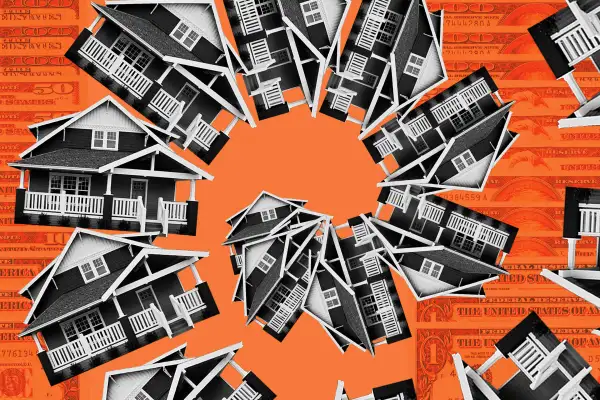15 Cities Where Home Prices Are Way Higher Than They Should Be

It's no secret that homes are expensive everywhere. But what you might not know is that buyers in some cities are paying premiums upwards of 60%.
A recent analysis from Florida Atlantic University and Florida International University identified the most overvalued housing markets in the country. The top finding? Buyers in the most overvalued market — Boise, Idaho — are paying an eye-watering premium of 73%, largely thanks to the recent boom in remote work.
The researchers found that historical price data suggests homes in Boise should cost $299,202 on average. Instead, the typical buyer is forking over $516,548 — roughly $217,000 more than they quote-unquote should.
The experts used data from real estate marketplace Zillow and other sources to determine the difference between the expected price of an average home in a given city based on historical trends and the prices buyers are actually paying. The difference between those two prices is what the researchers termed the premium associated with each housing market.
The researchers looked at the housing markets in the 100 biggest metro areas in the U.S. Here are the top 15 overvalued markets, along with the premium for each:
- Boise City, Idaho: 73%
- Austin, Texas: 68%
- Ogden, Utah: 65%
- Las Vegas, Nevada: 61%
- Atlanta, Georgia: 58%
- Phoenix, Arizona: 58%
- Provo, Utah: 57%
- Fort Myers, Florida: 56%
- Spokane, Washington: 56%
- Salt Lake City, Utah: 56%
- Charlotte, North Carolina: 55%
- Lakeland, Florida: 53%
- Tampa, Florida: 52%
- Raleigh, North Carolina: 51%
- Detroit, Michigan: 51%
On the other end of the spectrum, buyers in Baltimore, Maryland, are paying the smallest premiums of just 2.6% on average. Premiums are also low in Honolulu, Hawaii (2.9%), and New York, New York (3.6%).
Where are home prices headed next?
With mortgage rates rising and prices roughly 20% higher than they were last year, the housing market has become unaffordable for many Americans. Experts expect that as more buyers opt to sit on the sidelines and wait for things to cool off, the rapid growth in prices that has characterized the last two years will slow down — eventually.
“If we’re not at the peak of the current housing cycle, we’re awfully close,” Florida Atlantic University economist Ken H. Johnson said in a news release.
Redfin's chief economist, Daryl Fairweather, said in a separate blog post that while she expects price growth to slow this year, she doesn't expect prices to sink below 2021 levels.
For now, a shortage of inventory and strong demand from those that can still afford to buy are keeping prices elevated. And recent buyers are feeling the crunch: More than one-third of people who closed on a home in the past two years say they overpaid, according to a recent survey by Money and Morning Consult. Some 54% of recent buyers said they compromised on their budget.
More from Money:
The Wild Housing Market Is Scaring Young People Away From Buying Homes: Survey
